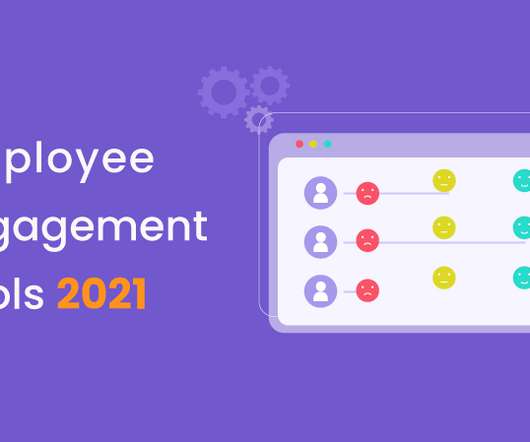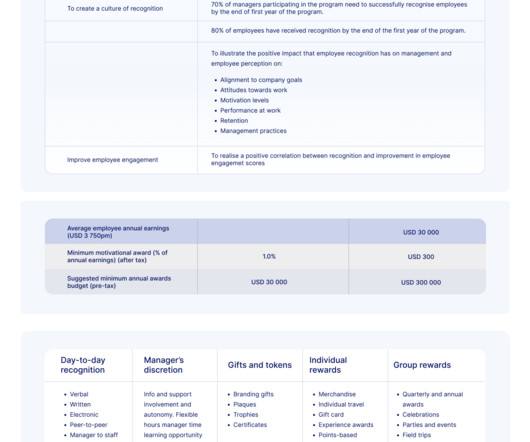Managers Who Don't Manage Pay
Compensation Cafe
MAY 21, 2019
Educate Managers in the philosophy and methodology of the organization’s pay programs, ensuring that this information is shared with their staff. Construct job specifications that call for a Manager to manage, as a prime accountability, limiting or even eliminating the retention of individual contributor responsibilities.
















Let's personalize your content